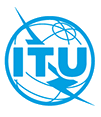PRIDA-ITU Delegation Agreement for Action
| Project No | 9RAF18089 |
| Title | PRIDA-ITU Delegation Agreement for Action |
| Description |
The objective of the project is to facilitate efficient and harmonized spectrum utilization to contribute to the overall objective of the Action “Policy and Regulation Initiative for Digital Africa (PRIDA)” which is to foster universally accessible, affordable and effective wireless broadband across the continent to unlock future benefits of internet based services. More particularly the specific objectives of the project are: - New policies for radio frequency spectrum management are developed; - Predictable and stable market environment is established to stimulate investments; The project is expected to contribute to fostering universally accessible, affordable and effective broadband across the African continent to unlock future benefits of ICTs. With a view to increase efficiency and impact, to avoid or minimize duplication or overlapping activities and to build on synergies and complementarities, the project will identify and take into consideration relevant work of the various stakeholders such as the African Union Commission (AUC), African Telecommunication Union (ATU), Arab States Broadcasting Union (ASBU), African Broadcasting Union (AUB) and Arab Spectrum Management Group (ASMG), etc. The project aims to focus on the creation of an enabling environment, in particular concerning radio spectrum framework to orient operators towards the best solutions for the system’s long-term cost-effectiveness, quality, and sustainability and to prepare an environment supportive of internet-based services. Harmonization efforts at Pan-African level of the four (4) core functions (spectrum licensing, spectrum pricing, spectrum refarming and cross border frequency coordination) will create the conditions for economies of scale and thus a rapid deployment of wireless broadband, filling an important gap in complementing the ongoing infrastructure-focused efforts towards increased ICT use across the continent.
|
| Area of Action |
Spectrum management and digital broadcasting |
| Status | Ongoing |
| Time Frame | From 1/12/2018 To 15/5/2024 |
| Beneficiary Countries | Algeria, Angola, Burundi, Benin, Burkina Faso, Botswana, Central African Rep., Chad, Cameroon, Cape Verde, Djibouti, Dem. Rep. of the Congo, Egypt, Equatorial Guinea, Eritrea, Ethiopia, Gabon, Gambia, Guinea-Bissau, Ghana, Guinea, Côte d'Ivoire, Kenya, Lesotho, Libya, Liberia, Madagascar, Mauritius, Mauritania, Mali, Malawi, Morocco, Mozambique, Namibia, Niger, Nigeria, Congo, Rwanda (Republic of), South Africa, Senegal, Seychelles, Sierra Leone, Somalia, South Sudan, Sao Tome and Principe, Sudan, Eswatini, Togo, Tunisia, Uganda, Tanzania, Zambia, Zimbabwe |
| Implementing Agency | International Telecommunications Union (ITU) |
| Cooperation Agency | European Union Delegation to the African Union |
| Financial Scale (CHF) | More than 1'000'000 |
| Achievements |
The main expected result of the project is to have efficient and harmonized spectrum utilization across the continent. The specific objectives of the project are: - Develop new policies for radio frequency spectrum management; - Establish predictable and stable market environment to stimulate investments. The work will be composed of the following outputs: 1. Spectrum allocation based on international best practices is improved: the aim is to improve legal framework and institutional establishment of the spectrum management framework and practices. 2. Terms and conditions for spectrum licensing as well as spectrum pricing predictability and alignment on international best practice with a view to have coherence between time of assignment with technologies availability and market readiness are improved: the objective is to encourage investments and introduction of new technologies/applications, foster the introduction of new spectrum cost methodologies supporting the development of broadband services and avoid spectrum warehousing. 3. Cooperation related to the treatment of harmful interference is strengthened via cross-border frequency coordination agreements. 4. Awareness and acceptance of the concept and economic models of Internet of Things (IoT) is increased. 5. Capacity building: train the staff of national regulatory and/or frequencies agencies. |



